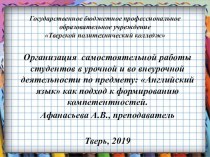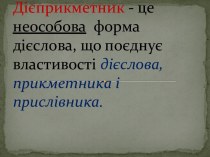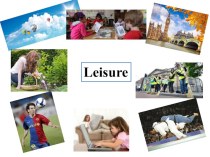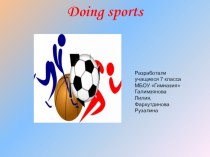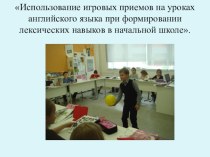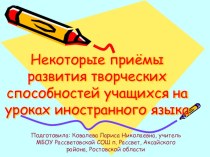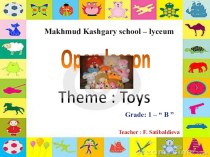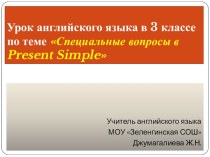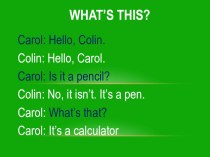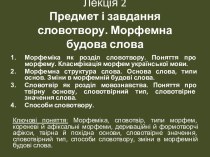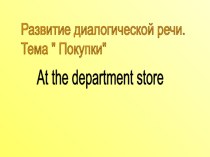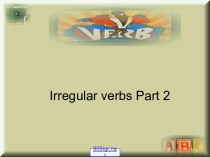- Главная
- Разное
- Бизнес и предпринимательство
- Образование
- Развлечения
- Государство
- Спорт
- Графика
- Культурология
- Еда и кулинария
- Лингвистика
- Религиоведение
- Черчение
- Физкультура
- ИЗО
- Психология
- Социология
- Английский язык
- Астрономия
- Алгебра
- Биология
- География
- Геометрия
- Детские презентации
- Информатика
- История
- Литература
- Маркетинг
- Математика
- Медицина
- Менеджмент
- Музыка
- МХК
- Немецкий язык
- ОБЖ
- Обществознание
- Окружающий мир
- Педагогика
- Русский язык
- Технология
- Физика
- Философия
- Химия
- Шаблоны, картинки для презентаций
- Экология
- Экономика
- Юриспруденция
Что такое findslide.org?
FindSlide.org - это сайт презентаций, докладов, шаблонов в формате PowerPoint.
Обратная связь
Email: Нажмите что бы посмотреть
Презентация на тему по английскому языку на тему Методика изучения английского языка
Содержание
- 2. ЧТО ТАКОЕ СТРАТЕГИИ ОБУЧЕНИЯ ЯЗЫКАМ ?
- 3. СТРАТЕГИИ…
- 4. Memory StrategiesCognitive StrategiesCompensation StrategiesMetacognitive StrategiesAffective Strategies Social Strategiesзапоминаниепознаниевосполнениесамопознаниеэмоциивзаимопонимание
- 5. Direct StrategiesI. Memory strategiesA.Creating mental linkages
- 6. verbs topic(weather)
- 7. Using imagery Friendship
- 9. Russian- brat [брат] (brother)English - brat (annoying person)
- 10. Using Physical Response or sensationTouch the floor,
- 11. Direct StrategiesII. Cognitive strategiesA. Practicing
- 12. Direct StrategiesIII. Compensation strategiesA. Guessing intelligently
- 13. When a learner recognizes the words ball,
- 14. Indirect StrategiesI. Metacognitive strategiesA. Centering your learning
- 15. Indirect StrategiesII. Affective strategiesA. Lowering your anxiety
- 16. Indirect StrategiesIII. Social strategiesA. Asking questions
- 17. Matching strategies and tasksExample: In a conversation,
- 18. Why do you want to learn another language?
- 19. What kind of learner are you?
- 20. Learning styles How do you use your physical senses?visual/auditory/kinesthetic
- 21. Learning stylesWhat kinds of learning tasks do you enjoy?extraverted/introverted
- 22. Learning stylesHow do you approach learning tasks?closure-oriented/open
- 23. Learning stylesHow do you deal with language rules?deductive/inductive
- 24. What are “effective” language learning strategies?Researchers have
- 25. What the research says about strategies
- 26. The “good” language learner...plans goals for language
- 27. Controller
- 28. Скачать презентацию
- 29. Похожие презентации
ЧТО ТАКОЕ СТРАТЕГИИ ОБУЧЕНИЯ ЯЗЫКАМ ?








![Презентация по английскому языку на тему Методика изучения английского языка Russian- brat [брат] (brother)English - brat (annoying person)](/img/tmb/6/511100/15316d35576b0cb3889755de4bb09eec-720x.jpg)





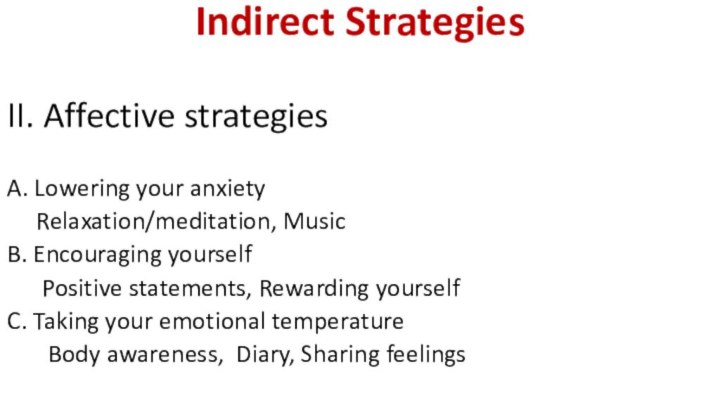






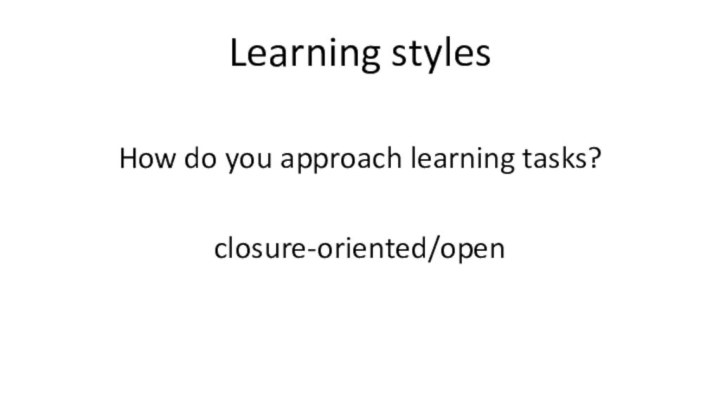

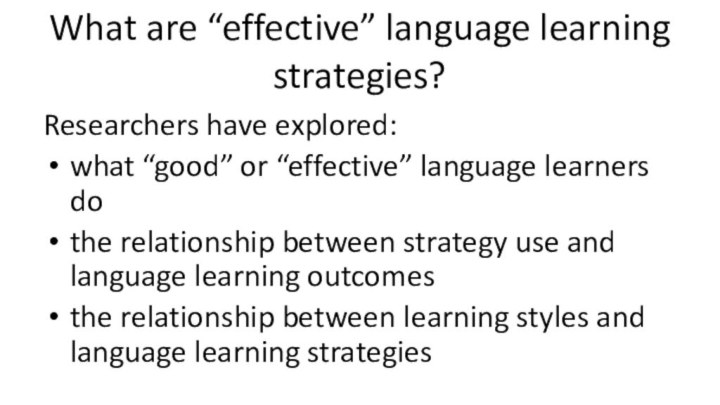
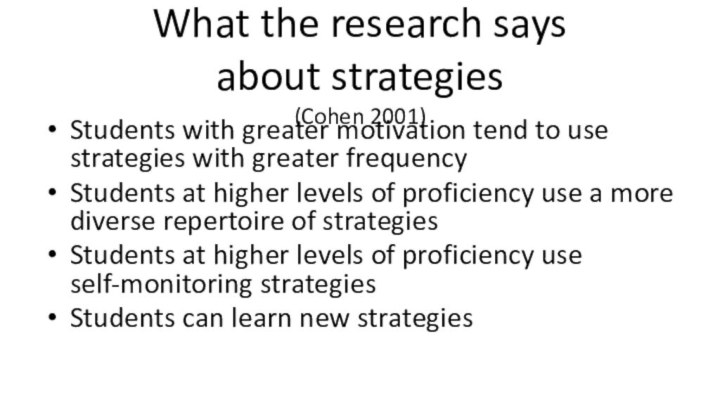
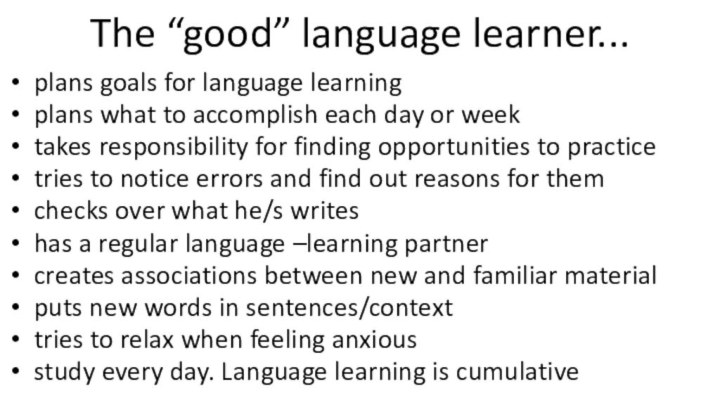

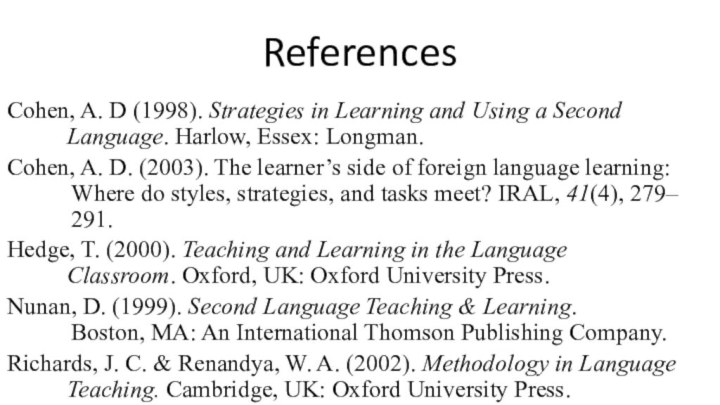
Слайд 4
Memory Strategies
Cognitive Strategies
Compensation Strategies
Metacognitive Strategies
Affective Strategies
Слайд 5
Direct Strategies
I. Memory strategies
A.Creating mental linkages
Grouping, Associating/elaborating, Contextualizing words
B. Applying images and sounds
Imagery, Semantic Mapping, Sounds in Memory
C. Reviewing well
Structured reviewing
D. Employing action
Physical response or sensation, Mechanical techniques
Слайд 6
verbs topic(weather) dissimilarities
accept cloudy
friendly/unfriendlyadd cold accurate/inaccurate
admire foggy attentive/inattentive
admit windy best/worst
advise snow dead/alive
afford humid dry/wet
Слайд 10
Using Physical Response or sensation
Touch the floor, put
your notebook in your backpack, come here, take out
a pencil. Put the pencil in your bag.Laugh, giggle, snap your fingers, take a walk, shout, sneeze.
Слайд 11
Direct Strategies
II. Cognitive strategies
A. Practicing
Repeating,
Formally, Formula/Pattern, Recombining,
NaturalisticallyB. Analyzing and reasoning
Analyzing expressions, Analyzing Contrastively, Translating
C. Creating structure for input and output
Taking notes, Summarizing, Highlighting
Слайд 12
Direct Strategies
III. Compensation strategies
A. Guessing intelligently
Using linguistic and other clues
B. Overcoming limitations in speaking
and writingHelp!, Gesture, Avoidance, Topic
Selection, Adjusting/Approximating, Coining words, Circumlocution/Synonym
Слайд 13 When a learner recognizes the words ball, player,
and winner in a conversation, it could be understood
that it is about sport.
Слайд 14
Indirect Strategies
I. Metacognitive strategies
A. Centering your learning
Focus, Paying attention, Just listening
B. Arranging and planning
your learningOrganizing, Setting goals, Identifying
purposes, Planning for task, Seeking times to practice
C. Evaluating your learning
Self-monitor, Self-evaluating
Слайд 15
Indirect Strategies
II. Affective strategies
A. Lowering your anxiety
Relaxation/meditation, Music
B. Encouraging yourself
Positive statements,
Rewarding yourselfC. Taking your emotional temperature
Body awareness, Diary, Sharing feelings
Слайд 16
Indirect Strategies
III. Social strategies
A. Asking questions
Clarification/verification, Correction
B. Cooperation with others
Peer support,
Interaction with native speakersC. Empathizing with others
Developing cultural understanding, Becoming aware of others’ thoughts and feelings
Слайд 17
Matching strategies and tasks
Example: In a conversation, understanding
the message without understanding every word
Strategies to try:
-
listening for key words (stress, intonation, pause)- make educated guesses about the meaning based on the topic, context, who is speaking, tone, body lang.
-predicting what the speaker might say
-asking clarification questions
-asking the speaker to repeat, slow down
Try to avoid:
-getting frustrated if (when) you don’t understand every word
Слайд 24
What are “effective” language learning strategies?
Researchers have explored:
what
“good” or “effective” language learners do
the relationship between strategy
use and language learning outcomesthe relationship between learning styles and language learning strategies
Слайд 25
What the research says
about strategies
(Cohen 2001)
Students with
greater motivation tend to use strategies with greater frequency
Students
at higher levels of proficiency use a more diverse repertoire of strategiesStudents at higher levels of proficiency use self-monitoring strategies
Students can learn new strategies
Слайд 26
The “good” language learner...
plans goals for language learning
plans
what to accomplish each day or week
takes responsibility for
finding opportunities to practicetries to notice errors and find out reasons for them
checks over what he/s writes
has a regular language –learning partner
creates associations between new and familiar material
puts new words in sentences/context
tries to relax when feeling anxious
study every day. Language learning is cumulative
